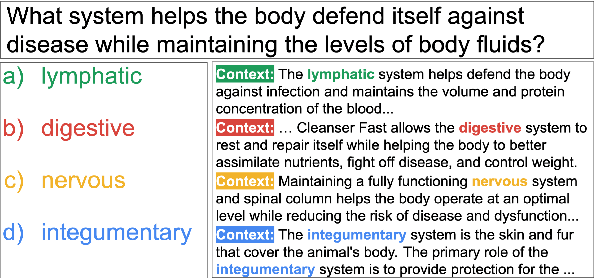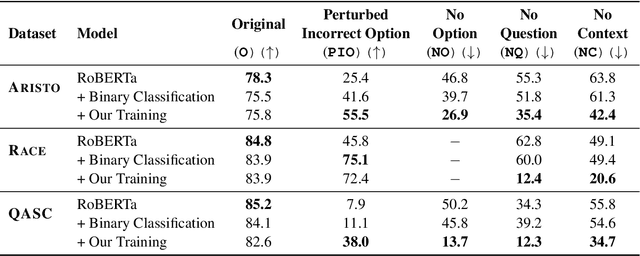What do we expect from Multiple-choice QA Systems?
Paper and Code
Nov 20, 2020



The recent success of machine learning systems on various QA datasets could be interpreted as a significant improvement in models' language understanding abilities. However, using various perturbations, multiple recent works have shown that good performance on a dataset might not indicate performance that correlates well with human's expectations from models that "understand" language. In this work we consider a top performing model on several Multiple Choice Question Answering (MCQA) datasets, and evaluate it against a set of expectations one might have from such a model, using a series of zero-information perturbations of the model's inputs. Our results show that the model clearly falls short of our expectations, and motivates a modified training approach that forces the model to better attend to the inputs. We show that the new training paradigm leads to a model that performs on par with the original model while better satisfying our expectations.
 Add to Chrome
Add to Chrome Add to Firefox
Add to Firefox Add to Edge
Add to Edge